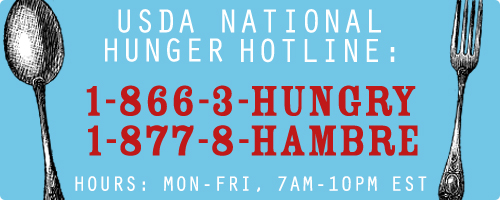South Carolina’s leaders want permission to limit the types of food that low-income families and individuals can buy with food stamps, an effort they say is aimed at improving health, reducing obesity and lowering health care costs in the state.
As part of this effort, Governor Nikki Haley and Catherine Templeton, director of the S.C. Department of Health and Environmental Control (DHEC), have held public meetings around the state to gather input for a potential request to the U.S. Department of Agriculture (which runs the Supplemental Nutrition Assistance Program, commonly called food stamps) for a waiver to restrict food-stamp purchases. While we support their desires to improve the health of our state and lower health care costs for all, we believe these efforts miss the bigger issue we know is facing South Carolina – hunger.
SC Appleseed fights for low income South Carolinians to overcome social, economic and legal injustice. We have worked for the past 30 years representing low income individuals and families who are beneficiaries of various family support programs, including: Medicaid, TANF, Unemployment Insurance and SNAP. We have had the opportunity to work on policy development on these issues at the Statehouse and with the various state agencies. Our team has testified before Congress on each of these programs, advocating to strengthen them and provide needed resources to families, children and elderly. Through our work for low-income South Carolina families and individuals, we have come to understand the challenges they face every day. Like the challenge of just getting to a grocery store when you have limited transportation; of having income that does not pay for all necessities such as food, shelter, utilities, transportation and child care; or that SNAP benefits are very small, and families must do what they can to stretch the resources they have.
We know that the food choices made by families living in poverty are most often driven by necessity. A study on the Supplemental Nutrition Assistance Program (SNAP) by the USDA finds:
“SNAP recipients are usually strategic in trying to stretch their SNAP benefits out over the course of the month. Yet most also report that they compromised nutrition and variety in their diets to ensure that they could provide enough food for the least expense. Though most families are conscientious in trying to provide a balanced meal every day for dinner, nearly all emphasize that they would shop differently—buying fresh vegetables instead of frozen, or leaner cuts of meat or fish—if their food budgets permitted.”
South Carolina ranks as having the 11th highest incidence of hunger and food insecurity in our country. Almost 20% of our population experiences hunger in our state, while the statistic for children is even worse at 25%. This is due to high poverty, low paying jobs, a lack of transportation and limited family supports. In the counties surrounding the I-95 corridor, we see almost 30% of our fellow South Carolinians facing hunger each year.
We can do better, we must do better.
There are positive steps that we can take as a state to eradicate hunger and improve nutrition. These can be done not through singling out SNAP beneficiaries and making them feel marginalized and embarrassed, but by bringing healthy foods and farmers markets to low income communities. We want to see South Carolina work to address the real health problem that affects so many of our citizens – hunger.


